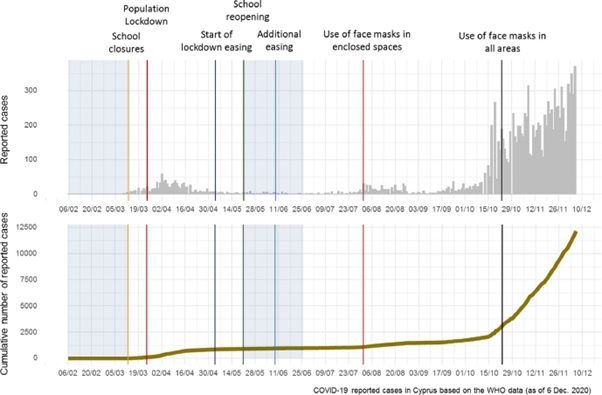Our lab's new publication in EClinical Medicine (The Lancet):
www.sciencedirect.com
Collaboration of CII with the Cyprus Ministry of Health
What was the study about?
A survey in Cyprus to study the impact of the initial population-wide NPI measures (lockdown) (March 13 - May 4) on the primary school children's exposome during the school re-opening period (May 21 – June 26).
Responses were received for 1509 children from over 180 primary schools in Cyprus.
What did the study show?
More than 72% of children complied with most NPI measures.
Changes in food frequency consumption, physical activity, screen time, digital communication and hand hygiene habits were observed between the pre- and post-lockdown periods.
Implications of available evidence
Findings could inform COVID-19 risk-based public health response strategies targeted for school settings.
Future response strategies to epidemics should consider elements of promoting a healthy lifestyle for children at school and at home.
Public health policy could benefit from the inclusion of the human exposome methodological framework and its tools to facilitate the deployment of site-tailored public health measures.



